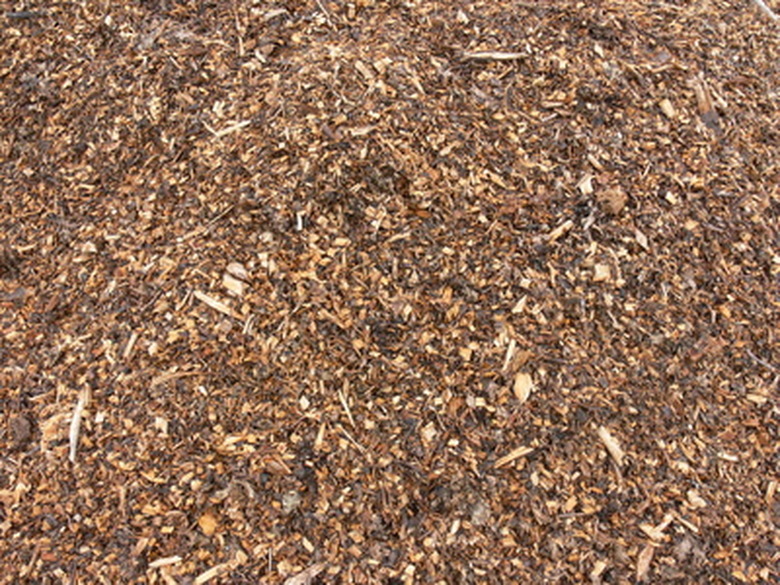Cedar Mulch & Termites
Mulching around foundation shrubbery improves curb appeal while building the soil and helping plants grow. Homeowners might worry about feeding termites right next to their homes' foundations, and avoid using wood chip mulch. Cedar chip mulch, however, repels termites (and many other insects) and is naturally decay resistant, making it an excellent choice when applied as recommended.
Benefits
Cedar mulch improves soil structure, enhances water infiltration, moderates temperature fluctuations and prevents both erosion and compaction. It improves the appearance of foundation plantings, perennial beds and vegetable gardens. (ref 1) Tree trimming services offer chipped cedar mulch free or for very reasonable prices, though it is often blended with other species. Look for pure cedar mulch at landscape centers or ask a tree service about the possibility of getting a load that is not mixed or is predominantly cedar.
- Mulching around foundation shrubbery improves curb appeal while building the soil and helping plants grow.
- ref 1) Tree trimming services offer chipped cedar mulch free or for very reasonable prices, though it is often blended with other species.
Misconceptions
Cedar's natural resistance to decay and insect infestation leads to the misconception that cedar is harmful to plants. Chris Starbuck, with the University of Missouri Extension Service writes that both small sample laboratory experiments and field data indicate no harmful effects on plants from exposure to cedar mulch.
Another common misconception about cedar mulch is that it ties up nitrogen in the soil, making it unavailable to the plantings. While this may be the case, the nitrogen binding occurs only at the surface of the soil, far above the root zone of most mulched plants. It is a valid concern for shallow rooted annuals, but not for perennials. (ref 1 page 3)
Expert Insight
Cedar naturally repels many insects, including termites, which should ease concerns among homeowners about using cedar mulch around foundation plantings. (ref 1 page 3) Even wood-based mulches other than cedar show less support for termite colonies than pea gravel mulch (ref 3). University of Maryland researchers suggest that mulch be held back 12 inches from the home's foundation, leaving a bare band of soil that will keep the termites from using the mulch as a bridge to their preferred food source, solid wood.
- Cedar's natural resistance to decay and insect infestation leads to the misconception that cedar is harmful to plants.
- Another common misconception about cedar mulch is that it ties up nitrogen in the soil, making it unavailable to the plantings.
Application
Cedar mulch provides its greatest benefit when applied at the proper depth. For landscaping applications, Linda Chalker-Scott, Urban Horticulturalist for the Washington State University Extension Service, recommends 4 to 6 inches. She also admonishes against piling mulch up around the base of trees and shrubs (ref 1 page 3).
Other Benefits
Cedar mulch isn't just inhospitable to termites, ants don't like it either. Researchers at North Carolina State University concluded that homes surrounded by cedar mulch needed much less chemical control for ant populations than homes mulched in other products like pine needles and pine bark (ref 4 page 5)
